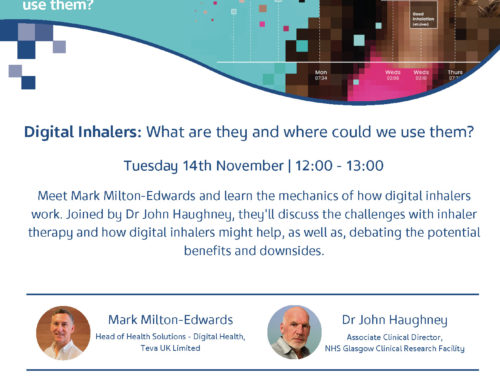10 December 2021. The Pharmacists’ Defence Association (PDA) is highlighting this issue to ensure that pharmacies continue to safely offer services to the public after significant numbers of employed and locum pharmacists raised concerns that pharmacies appear to be being temporarily closed in a systematic fashion in Scotland.
The PDA made Freedom of Information (FOI) requests to the Scottish Health Boards asking for their records of pharmacy closures between 01st June and 31st August 2021 and a minimum of 574 closures were identified from their replies.
There are hundreds of pharmacy closures every month
In July 2021 alone there were 338 confirmed temporary pharmacy closures, 331 (98%) were in pharmacies owned by UK multiple pharmacy chains headquartered in England (LloydsPharmacy, Boots, Well, Rowlands and some supermarkets), and only 7 occurred in Scottish owned pharmacies (three in small pharmacy chains, four in independently owned pharmacies). The PDA believes the number of closures may be significantly higher than officially reported to Health Boards.
Geographically the closures did not materially occur in rural or distant areas, the majority are concentrated in urban areas, particularly in those neighbourhoods’ notable for having higher incidences of poverty as measured by the Scottish Index of Multiple Deprivation (SIMD).
There does seem to be a correlation between more deprived neighbourhoods and the frequency of closures.
There are hotspots, 37.0% of confirmed closures were in Lothian, 19.5% of closures were in Fife, and 12.1% were in Ayrshire.
In data provided by the Health Boards, LloydsPharmacy were responsible for the majority of closures (56.6%) and this was seen in all the larger health boards, they were responsible for 81.0% of reported closures in Tayside, 68.2% in Fife and 76.8% in Forth Valley.
There are islands of closures throughout Scotland that bear some relation to local rates of deprivation, many of the areas worst affected are scored in the top 20% of most deprived neighbourhoods in Scotland.
What are the causes of pharmacy closures?
The independently owned and smaller local chains in Scotland appear able to engage sufficient staff to open. We therefore believe that this is not indicative of a shortage of pharmacists, neither do we accept that the pandemic can be used as an explanation.
However, many pharmacists tell us that the working conditions are a factor in where they chose to work, and that under-investment in systems, staffing and premises are all factors that deter pharmacists from opting to work for some pharmacy companies.
Some locum pharmacists have reported to the PDA that they have offered to work in a particular pharmacy, however despite their availability the company has subsequently closed rather than engage them.
In Scotland, pharmacies are more generously funded than in England, and different and increased service levels are required. Unless the UK wide chains reflect this in their business models, they could potentially be using payments made by the Scottish government to subsidise the rest of their UK networks at the expense of Scottish taxpayers.
What can be done to address the problem?
In the event of routine failure to comply with the contracted terms of service, such as pharmacy closures that have resulted in patients being unable to receive the services needed to maintain their health, a health board can refer the company to an NHS tribunal for disqualification. We are aware that Tayside Health Board has served a warning notice on LloydsPharmacy, saying that they will refer them to the NHS tribunal in the event that their services continue to be inadequate.
There is no provision to fine pharmacy companies who supply inadequate pharmaceutical services, even when their pharmacies are closed to the detriment of patients and local communities.
Elsewhere in the health system, there is provision to take over GP surgeries from their GP partner owners. The GPs that then work in these ‘salaried’ practices are employed directly by NHS Scotland as NHS employees and are paid a competitive salary. These GP-led facilities are wholly NHS-owned and staffed, any savings from the previous contract, the profit, and from any other efficiency savings made in these ‘salaried’ practices are retained by NHS Scotland.
The PDA knows of no reason why this approach cannot also apply to failing community pharmacies, it shouldn’t just take account of closures, it could take account of the condition of a pharmacy, the staffing levels, as well as the number and quality of the services offered. The principle should be that continuity of service to the community is assured, that the pharmacy staff will deliver the services as NHS employees and that any profit generated returns to the NHS, instead of being delivered to the shareholders of corporate entities.
NHS Scotland should progress the principle that a Health Board can take over failing community pharmacies and absorb them into the NHS, and the PDA suggest that either Tayside or Fife Health Boards may be ideal organisations where a solution like this could be trialed, if necessary.
The employed and locum pharmacists working in Scotland’s communities have striven hard to deliver services throughout the pandemic, they have never decided to shut the doors, nor have the vast majority of independently owned or small chain Scottish pharmacy owners.
However, certain companies have chosen, for whatever reason, to do so. The actions of certain pharmacy companies are a breach of the 2009 NHS regulations and the NHS (Scotland) Act 1978.
In doing so, the PDA believe that they have badly let down their valuable and highly trained pharmacy staff, damaged the reputation of the pharmacy profession and most unforgivably, they are continuing to let down the poorest communities and the most vulnerable patients to the potential detriment of their health.
In the interests of patient care and safety, we want to see this situation improve, so to maintain the reputation of pharmacy as being highly accessible and the first port of call for people seeking health information, advice and treatment for common conditions in the heart of each community.
To access the briefing note, please click here.
For further information, please contact Maurice Hickey, Head of Policy for PDA Scotland on Maurice.Hickey@the-pda.org or 07801 766713.








